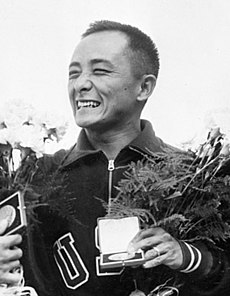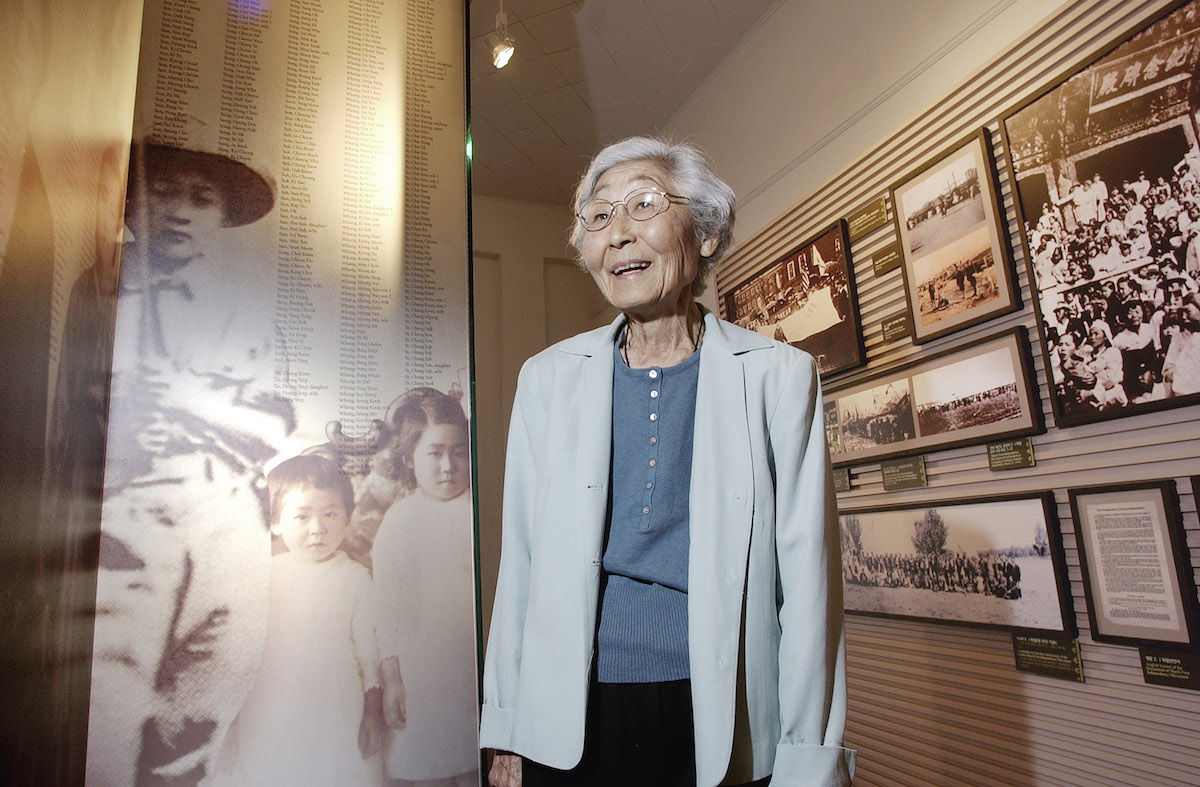In Korea, several holidays commemorate the passage of time and events that led to present-day South Korea. These days celebrate many different things like the Korean kingdom’s establishment, the Korean language writing system (Hangul), and the invention of several historical items throughout Korean history. The March 1st Movement was one of the first prominent public displays of Korean resistance during the Japanese occupation of Korea. The protests began when a group called the 33 independence representatives read the Korean Declaration of Independence at Tapgol during King Gojong’s funeral service. It is accredited as the first Major Korean independence in the peninsula and overseas. However, in the 21st century, countries outside Korea are beginning to recognize the achievements of Korean history and its historical figures. Western countries are also formally celebrating these achievements’ long-lasting effects on the modern world. Here at VANK, we are creating a series to explore further and appreciate overseas holidays celebrating Korean cultural achievements. In this series, we will examine the origins of Korean culture and recognize well-received characters abroad. Korean culture and history have an impact all over the world. Today, let’s learn more about Korean American day, which pays homage to Korean Americans that made significant contributions to Korean and U.S history; and Kimchi Day, which emphasizes the popularity and history of Kimchi in the United States as well as its value as a healthy food.
 (Four-time Olympic Gold Medalist Sammy Lee)
(Four-time Olympic Gold Medalist Sammy Lee)
Korean American Day
Every year, on January 13, the Korean American Foundation celebrates Korean American day, celebrating the pioneering spirit and patriotism of Korean immigrant ancestors. The holiday represents the 100-year-old dream of Korean ancestors. They came to the U.S in hopes of creating a better future for the next generation of Koreans while passing down Korea’s traditional heritage to them as well. On January 13, 2010, various events were held in major U.S. cities such as Washington, D.C., and New York to celebrate Korean American Day; the celebrations mainly honored the achievements of the Korean American community and native Koreans aboard. It was passed by the federal Senate on December 16, 2005, with former Senators Allen George (Republican, Virginia), Senator Richard Durbin (Democratic, Illinois), late Senator Daniel Inouye (Democratic, Hawaii), late Senator Edward Kennedy (Democratic, Massachusetts), and late Senator Ted Stevens (Republican, Alaska) leading the discussion efforts. The resolution recognized Korean Americans and their achievements in positively contributing to American society. According to Senate Resolution 283, on January 13, 1903, the first 102 Koreans moved to the United States and opened the history of Korean immigration in the United States. The report also includes stories of Korean Independence activists who fought with the U.S. military in World War I, World War II, and the Korean War. In the 1900s, thousands of Koreans came to the United States to escape war, starvation, and devastation to regain new life opportunities. Like other American immigrant communities in the United States, Korean-Americans have formed strong family ties and Korean society in the process of settling into U.S. society. The Korean community’s strong support and hard work over the course 0f 100 years created Korean-American culture. Since then, the Korean-American community has made numerous achievements, changing the history of the United States. Korean physicians who came to the U.S. first discovered a pulsating heart surgery method to treat coronary artery disease. Korean farmers developed a celestial peach in agriculture, and Korean diver Sammy Lee became a four-time Olympic gold medalist. In this way, Korean- Americans led many achievements in various fields such as engineering, architecture, pharmaceuticals, and the arts.
 Ahn Soo-san, the eldest daughter of Dosan Ahn Chang-ho, considered the first representative of overseas Koreans, expanded women’s rights in the U.S. and changed women’s rights forever when she became the first female Asian naval officer. Her achievements are recognized by the White House, the Pentagon, and various media outlets every May for her contribution to the progress of U.S. history. After overcoming the sexual prejudice and racism that unfortunately still exists in American society, she uplifted the voices of women and minorities in the United States. Born in 1915, she lived for over 2 decades before she passed away in 2015. During World War II, she joined the Navy voluntarily, became the first Asian female naval officer, the first U.S. female air gunnery officer, a captain of the U.S. Navy’s elite cryptographic team, and a secret intelligence analyst dedicated to the U.S. National Security Agency (NSA). The year 2003 marks the 100th anniversary of Korean immigration to the U.S..The Centennial Commission of Korean Immigration and Korean Americans set January 13 as “Korean American Day” to mark the 100-year journey of Korean immigrants to the U.S.
Ahn Soo-san, the eldest daughter of Dosan Ahn Chang-ho, considered the first representative of overseas Koreans, expanded women’s rights in the U.S. and changed women’s rights forever when she became the first female Asian naval officer. Her achievements are recognized by the White House, the Pentagon, and various media outlets every May for her contribution to the progress of U.S. history. After overcoming the sexual prejudice and racism that unfortunately still exists in American society, she uplifted the voices of women and minorities in the United States. Born in 1915, she lived for over 2 decades before she passed away in 2015. During World War II, she joined the Navy voluntarily, became the first Asian female naval officer, the first U.S. female air gunnery officer, a captain of the U.S. Navy’s elite cryptographic team, and a secret intelligence analyst dedicated to the U.S. National Security Agency (NSA). The year 2003 marks the 100th anniversary of Korean immigration to the U.S..The Centennial Commission of Korean Immigration and Korean Americans set January 13 as “Korean American Day” to mark the 100-year journey of Korean immigrants to the U.S.

Kimchi Day
Washington, D.C. recognizes the excellence of Kimchi, Korea’s signature food. The Korea Agro-Fishery Food Trade Corporation and the Washington DC Congress unanimously passed a resolution to establish Kimchi Day on July 28. “Kimchi Day” stipulates that Korea is the historical owner of Kimchi. On Kimchi Day, President Kim Chun-jin said, “It is essential that the capital of the U.S. recognizes Korea as Kimchi’s original country of origin,” adding, “It will increase the status of K-foods such as kimchi and expand exports.” To promote the value and excellence of Kimchi, a legal holiday was created in Korea on November 22, 2022. In the 21st century, China has been distorting the origin and history of Kimchi. They have perpetuated a false narrative that Kimchi is traditional Chinese food rather than Korean. Most experts say the controversy does not simply stop at the Chinese government trying to steal Kimchi. They are making several false claims on Korean culture in correspondence to their “northeast agenda’, which aims to assimilate traditional Korean culture into Chinese culture. This has become an enormous issue lately in global media, and china has been making false claims about several aspects of traditional Korean culture, including but not limited to Kimchi, Samgyeobsal, and Hanbok(the traditional Korean dress). Recently, China’s northeast process is becoming commonplace in foreign countries. Therefore, Koreans in the United States strongly express that Korea is the “mainland of kimchi.” One of those expressions was the enactment on Kimchi Day. On November 22, 2013, the process of making Kimchi was recognized as an intangible cultural heritage by UNESCO. Therefore, the Washington D.C. congress made November 22 “Kimchi day” in honor of the date. The congresswoman who led the establishment of Kimchi Day was Rep. Anita Bonds. It is said that the Korean government thanked her for actively cooperating with Korean organizations in the states to establish Kimchi Day. Over the past decade, U.S. kimchi exports have decupled. Washington D.C. is the fourth region to enact Kimchi day in the U.S. after it was established in California last year. It was based in Virginia and New York in February this year, and more states are expected to set “Kimchi Day” in 2023. In the past, Japan tried to register Kimchi as its food in UNESCO under the name of “Kimchi,” and recently, China has named kimchi “Phao Chai” and has forced their way into “claiming” Kimchi as theirs. These narratives are false. Kimchi has always been traditionally and historically a Korean food. The efforts that Japan and China attempt to make are a direct response to the popularity of the Hallyu wave and its positive effect on the reiteration of Korean history on the global spectrum. Therefore Koreans overseas and on the peninsula are making moves, like the establishment of Kimchi day, to assert Korean sovereignty over Korean traditional culture further. In turn, these efforts also maintain Korean historical independence and serve as Korean independence activism in the 21st century.
Over the last 100 years, Korean compatriots have spread traditional Korean culture/history to other cultures and the next generation of Koreans overseas. They took pride in the creation of Korean history and the culture of their society. The process of transmitting Korean culture and traditions through Korean compatriots also changed the history of the United States. Korean cultural values during the early 19th century, most of them stemming from Korean Independence culture, like the equality of men and women in the military, traditional science, and medical technology, significantly impacted American culture. Inventions in Korea affect not only Korea but also the whole world. Significant Korean historical figures are drawing attention in other countries in various fields. As a result, countries like the United States in the 21st century are beginning to recognize the importance of these achievements by creating national holidays.
Written by: Kamilah Dreux
Originally from Oakland, California and Washinton D.C., Bachelor of the Arts Graduate in Korean Language Flagship and Korean History at the University of Hawaiʻi, Current Graduate Student at Korea University and Global Youth researcher at VANK( Voluntary Agency Network of Korea)
Image source:
- https://englishspectrum.com/kimchi-day-22nd-november/
- https://time.com/4314308/susan-cuddy-history/
- https://olympics.com/en/video/groundbreaking-diver-sammy-lee-dies-at-96
